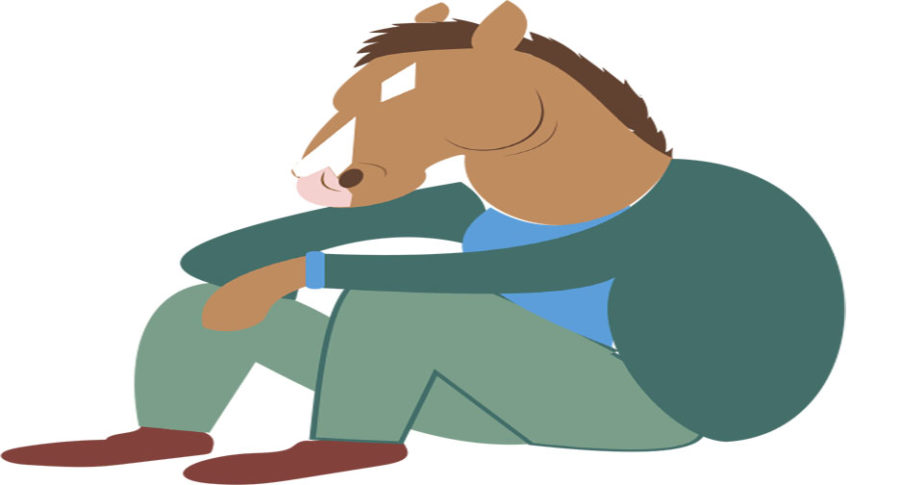“Bojack Horseman” dies as it lived, giving an emotionally jarring end to the trip through the damaged psyches of its characters that leaves its audience unsure of whether to feel glad it’s over or torn apart over a lack of resolution.
Comedy shows tend to have emotionally-rich endings, and with “Bojack Horseman” releasing its last episodes this past Friday, a large portion of its audience was expecting exactly that. The ending that we got, however, is far from the usual reminiscing on old times to drum up emotion that has become the customary way that comedies take their exit.
The show has always provided its viewers with a morally complex and painfully realistic depiction of mental illness and depression, with the actions of its characters, chiefly Bojack Horseman, having a tangible and long-lasting impact on its world. The final six episodes of the show are the climax of this six-season-long buildup, and the pressure on the show to give an ending that lives up to its own setup is immense.
For many of the characters, their arcs are either completely resolved or simply brought to the point where the viewer can feel comfortable saying goodbye. The in-depth focus that this show gives to even the side characters continues throughout the last episodes, and it does a good job in giving the colorful and diverse cast a good sendoff.
With regards to Bojack Horseman, the show delivers a truly cathartic release to this complex, troubling and captivating figure. The show gives meaning to all of the addiction, pain and suffering that Horseman experiences within his twisted character arc. They do this without excusing his actions and giving the character undue sympathy in the name of resolution.
When the moment finally comes where Bojack’s story arrives at a natural end, it’s like jerking awake from a nightmare. The audience, having just been put through the emotional wringer, is thoroughly jarred while also relieved that they can have a satisfying conclusion to such an emotionally-charged character, but then the show goes on for another episode.
The cathartic value that was in the show’s second-to-last episode is completely undone by its concluding episode, leaving the audience with a distinct feeling of having been robbed. The actual conclusion to the show is not only far less satisfying but also leaves Bojack’s character arc completely unresolved.
Given the show’s well thought out plotline, which has been neatly looked after by its writers throughout the entirety of the series, this presentation of a symbolically valuable and satisfying ending followed by the subsequent denial of that ending could very well be a statement on the futility of trying to derive meaning from tragedy. But because “Bojack Horseman” doesn’t exist in a vacuum outside of the larger context of media analyses, seeing the ending as unsatisfying and unfinished is an equally valid reaction.
Looking back through the series in its entirety, “Bojack Horseman” was a consistently innovative and profound show that not only pushed the envelope on the value of animation and cartoons but of TV as a whole. Now that the show is over, the audience can take away from it a unique perspective on how trauma and mental illness affects people. Despite the potentially polarizing nature of its ending, look back on it with historical renown.
































